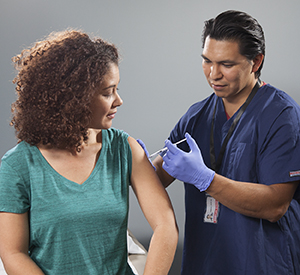Most bites and scratches from household pets are nothing to worry about. But some bites or scratches can be serious. Some bites or scratches may become infected or pose the risk of rabies. For that reason, it's best to talk with your health care provider or get medical care.
Reporting
Report severe animal bites to animal control or your local health department.
When to go to the emergency room (ER)
A bite that barely breaks the skin often isn't cause for concern. But get emergency medical care if you:
-
Have a deep puncture wound or badly torn skin.
-
Have redness, swelling, or warmth near the wound.
-
Think you may have a broken bone or other serious injury.
-
The attack was unprovoked, and you don't know the animal. Rabies must be ruled out.
-
Are bitten by a domestic cat, a small animal such as a rabbit or guinea pig, or a wild animal such as a skunk, raccoon, or bat.
-
Don't have a spleen or have a weak immune system.
What to expect in the ER
-
The wound will be carefully cleaned and inspected.
-
X-rays may be taken if deep damage is suspected, or to make sure a small piece of the animal's tooth is not left embedded in the wound.
-
Infection can occur, especially if you have a cat bite, deep wound, or have a weak immune system. You may be given antibiotics to help prevent this.
-
You may be given a tetanus shot if you haven't had one in the past 5 years. If rabies is a concern, you may be given shots to protect you.
-
If serious tissue or joint damage has been done, you may be referred to a plastic or orthopedic surgeon.
Follow-up care
You will likely need to see your health care provider within a day or two of getting emergency medical treatment. In the meantime, watch for signs of infection. These include:
-
Fever of 100.4°F (38°C) or higher, or as directed by your provider.
-
Swelling.
-
Redness.
-
Pus draining from the wound.


